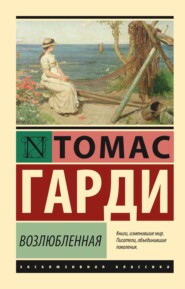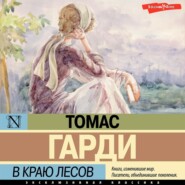По всем вопросам обращайтесь на: info@litportal.ru
(©) 2003-2025.
✖
Time's Laughingstocks, and Other Verses
Настройки чтения
Размер шрифта
Высота строк
Поля
– Yet, would men look at true things,
And unilluded view things,
And count to bear undue things,
The real might mend the seeming,
Facts better their foredeeming,
And Life its disesteeming.
February 1899.
PANTHERA
(For other forms of this legend – first met with in the second century – see Origen contra Celsum; the Talmud; Sepher Toldoth Jeschu; quoted fragments of lost Apocryphal gospels; Strauss, Haeckel; etc.)
Yea, as I sit here, crutched, and cricked, and bent,
I think of Panthera, who underwent
Much from insidious aches in his decline;
But his aches were not radical like mine;
They were the twinges of old wounds – the feel
Of the hand he had lost, shorn by barbarian steel,
Which came back, so he said, at a change in the air,
Fingers and all, as if it still were there.
My pains are otherwise: upclosing cramps
And stiffened tendons from this country’s damps,
Where Panthera was never commandant. —
The Fates sent him by way of the Levant.
He had been blithe in his young manhood’s time,
And as centurion carried well his prime.
In Ethiop, Araby, climes fair and fell,
He had seen service and had borne him well.
Nought shook him then: he was serene as brave;
Yet later knew some shocks, and would grow grave
When pondering them; shocks less of corporal kind
Than phantom-like, that disarranged his mind;
And it was in the way of warning me
(By much his junior) against levity
That he recounted them; and one in chief
Panthera loved to set in bold relief.
This was a tragedy of his Eastern days,
Personal in touch – though I have sometimes thought
That touch a possible delusion – wrought
Of half-conviction carried to a craze —
His mind at last being stressed by ails and age: —
Yet his good faith thereon I well could wage.
I had said it long had been a wish with me
That I might leave a scion – some small tree
As channel for my sap, if not my name —
Ay, offspring even of no legitimate claim,
In whose advance I secretly could joy.
Thereat he warned.
“Cancel such wishes, boy!
A son may be a comfort or a curse,
A seer, a doer, a coward, a fool; yea, worse —
A criminal.. That I could testify!”
“Panthera has no guilty son!” cried I
All unbelieving. “Friend, you do not know,”
He darkly dropt: “True, I’ve none now to show,
For the law took him. Ay, in sooth, Jove shaped it so!”
“This noon is not unlike,” he again began,
“The noon these pricking memories print on me —
Yea, that day, when the sun grew copper-red,
And I served in Judæa.. ’Twas a date
Of rest for arms. The Pax Romana ruled,
To the chagrin of frontier legionaries!
Palestine was annexed – though sullen yet, —
I, being in age some two-score years and ten
And having the garrison in Jerusalem
Part in my hands as acting officer
Under the Governor. A tedious time
I found it, of routine, amid a folk
Restless, contentless, and irascible. —
Quelling some riot, sentrying court and hall,
Sending men forth on public meeting-days
To maintain order, were my duties there.
“Then came a morn in spring, and the cheerful sun
Whitened the city and the hills around,
And every mountain-road that clambered them,
Tincturing the greyness of the olives warm,
And the rank cacti round the valley’s sides.
The day was one whereon death-penalties
Were put in force, and here and there were set
The soldiery for order, as I said,
Since one of the condemned had raised some heat,
And crowds surged passionately to see him slain.
I, mounted on a Cappadocian horse,
With some half-company of auxiliaries,
Had captained the procession through the streets
When it came streaming from the judgment-hall
After the verdicts of the Governor.
It drew to the great gate of the northern way
That bears towards Damascus; and to a knoll
Upon the common, just beyond the walls —
Whence could be swept a wide horizon round
Over the housetops to the remotest heights.
Here was the public execution-ground
For city crimes, called then and doubtless now
And unilluded view things,
And count to bear undue things,
The real might mend the seeming,
Facts better their foredeeming,
And Life its disesteeming.
February 1899.
PANTHERA
(For other forms of this legend – first met with in the second century – see Origen contra Celsum; the Talmud; Sepher Toldoth Jeschu; quoted fragments of lost Apocryphal gospels; Strauss, Haeckel; etc.)
Yea, as I sit here, crutched, and cricked, and bent,
I think of Panthera, who underwent
Much from insidious aches in his decline;
But his aches were not radical like mine;
They were the twinges of old wounds – the feel
Of the hand he had lost, shorn by barbarian steel,
Which came back, so he said, at a change in the air,
Fingers and all, as if it still were there.
My pains are otherwise: upclosing cramps
And stiffened tendons from this country’s damps,
Where Panthera was never commandant. —
The Fates sent him by way of the Levant.
He had been blithe in his young manhood’s time,
And as centurion carried well his prime.
In Ethiop, Araby, climes fair and fell,
He had seen service and had borne him well.
Nought shook him then: he was serene as brave;
Yet later knew some shocks, and would grow grave
When pondering them; shocks less of corporal kind
Than phantom-like, that disarranged his mind;
And it was in the way of warning me
(By much his junior) against levity
That he recounted them; and one in chief
Panthera loved to set in bold relief.
This was a tragedy of his Eastern days,
Personal in touch – though I have sometimes thought
That touch a possible delusion – wrought
Of half-conviction carried to a craze —
His mind at last being stressed by ails and age: —
Yet his good faith thereon I well could wage.
I had said it long had been a wish with me
That I might leave a scion – some small tree
As channel for my sap, if not my name —
Ay, offspring even of no legitimate claim,
In whose advance I secretly could joy.
Thereat he warned.
“Cancel such wishes, boy!
A son may be a comfort or a curse,
A seer, a doer, a coward, a fool; yea, worse —
A criminal.. That I could testify!”
“Panthera has no guilty son!” cried I
All unbelieving. “Friend, you do not know,”
He darkly dropt: “True, I’ve none now to show,
For the law took him. Ay, in sooth, Jove shaped it so!”
“This noon is not unlike,” he again began,
“The noon these pricking memories print on me —
Yea, that day, when the sun grew copper-red,
And I served in Judæa.. ’Twas a date
Of rest for arms. The Pax Romana ruled,
To the chagrin of frontier legionaries!
Palestine was annexed – though sullen yet, —
I, being in age some two-score years and ten
And having the garrison in Jerusalem
Part in my hands as acting officer
Under the Governor. A tedious time
I found it, of routine, amid a folk
Restless, contentless, and irascible. —
Quelling some riot, sentrying court and hall,
Sending men forth on public meeting-days
To maintain order, were my duties there.
“Then came a morn in spring, and the cheerful sun
Whitened the city and the hills around,
And every mountain-road that clambered them,
Tincturing the greyness of the olives warm,
And the rank cacti round the valley’s sides.
The day was one whereon death-penalties
Were put in force, and here and there were set
The soldiery for order, as I said,
Since one of the condemned had raised some heat,
And crowds surged passionately to see him slain.
I, mounted on a Cappadocian horse,
With some half-company of auxiliaries,
Had captained the procession through the streets
When it came streaming from the judgment-hall
After the verdicts of the Governor.
It drew to the great gate of the northern way
That bears towards Damascus; and to a knoll
Upon the common, just beyond the walls —
Whence could be swept a wide horizon round
Over the housetops to the remotest heights.
Here was the public execution-ground
For city crimes, called then and doubtless now

















